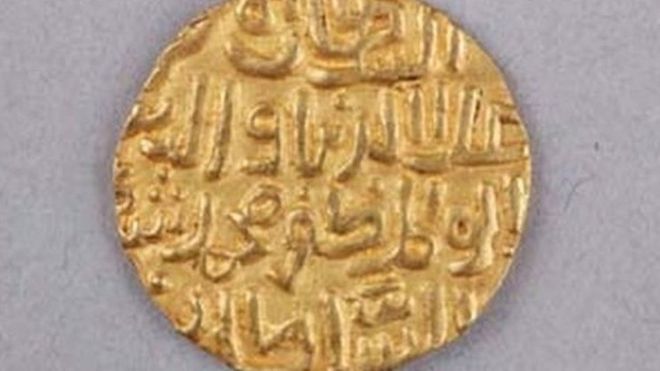BBC NEWS | February 17, 2016

(Image Coutesy: Jinshi Cultural Relics Bureau)
A museum in eastern China is offering a reward to anyone who can decipher the inscriptions written on six gold coins in its collection.
The centuries-old coins were first unearthed on a farm in the southern Hunan province in the 1960s, where they had been kept inside a small glazed pot. They arrived at Jinshi City’s museum in the 1980s, and archaeologists have been puzzling over their markings ever since, the Xinhua news agency reports. Now the museum says it’ll hand out 10,000 yuan ($1,500; £1,100) to anyone who can help to shed light on the meaning of the coins’ etchings.
The director of the city’s Cultural Relics Bureau says they were manufactured in the Delhi Sultanate, the main Muslim sultanate in northern India, around the late 13th Century during China’s Yuan dynasty. The front of the coins bears the name of a king, written in a rare form of Arabic, Peng Jia tells the China News Service. “But the information on the back is difficult to decode. I have consulted Chinese and foreign experts, but to no avail.”
The coins have been designated as “first-grade national cultural relics”, meaning they are officially considered national treasures in China.


